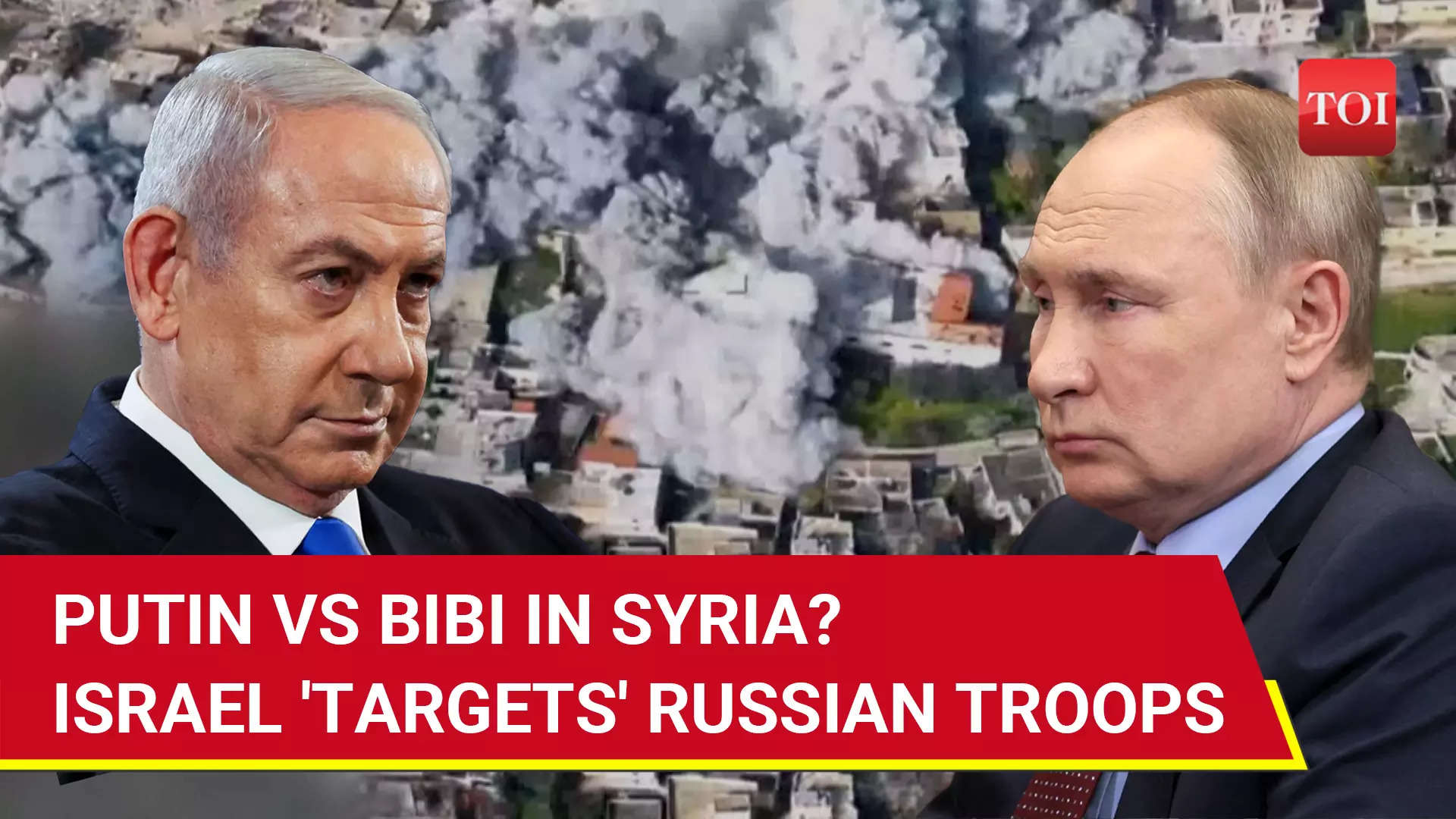 |
|
The recent Israeli airstrikes on Syrian military sites, particularly those near the Russian naval base in Tartus, represent a significant escalation of tensions in the already volatile region. The reported intensity of the strikes, described as the 'heaviest' in recent years, signals a potential shift in Israeli military strategy and a calculated risk in challenging Russia's presence in Syria. The targeting of Tartus, a key Russian asset, raises serious questions about the long-term implications for the relationship between Israel and Russia, two nations that have, despite their differing interests in the Syrian conflict, maintained a degree of cooperation in the past. This delicate balance now seems severely tested.
The Syrian Observatory for Human Rights, a UK-based war monitor, reported that multiple military sites in Tartus and Latakia were hit. Latakia, once a stronghold for the Assad regime before his flight to Moscow, and Tartus, home to Russia's crucial Mediterranean naval base, hold considerable strategic importance. The choice of these targets indicates a deliberate intention to inflict damage on both the Syrian military infrastructure and, potentially, to directly challenge Russia's support for the Assad government. The eyewitness accounts from residents, describing the strikes as feeling like an earthquake, emphasize the power and destructive potential of the Israeli attacks.
The geopolitical ramifications of this action are far-reaching. Israel, consistently concerned about Iranian military presence in Syria and the potential for weapons transfers to Hezbollah, has repeatedly carried out airstrikes in the country. However, the scale and location of the latest strikes represent a significant departure from previous actions, highlighting a possible increase in Israeli resolve to curtail Iranian activities. Russia, while generally maintaining a close relationship with Assad and providing considerable military support, has historically avoided direct confrontation with Israel, attempting to manage the risks of conflict in the region. The response from Moscow to these airstrikes will be a key indicator of future developments and could significantly shape the trajectory of the Syrian conflict.
Furthermore, the international community's reaction will be crucial. Nations with vested interests in the region, such as the United States, will carefully assess the situation, weighing their own strategic goals and alliances against the potential for further escalation. The possibility of unintended consequences, such as an accidental escalation into a wider conflict involving Russia, remains a significant concern. The careful management of international diplomacy will be critical in preventing the situation from spiraling out of control.
The incident underscores the complex and precarious nature of the geopolitical landscape in the Middle East. The ongoing conflict in Syria, interwoven with competing regional and international interests, demonstrates the significant challenges in achieving lasting peace and stability. The immediate future will depend heavily on how the various actors involved respond to this significant escalation, particularly the responses from Russia and the international community, and their commitment to de-escalation efforts.
Beyond the immediate military implications, the long-term consequences are equally significant. The incident has the potential to further destabilize the region, disrupt existing power balances, and potentially lead to renewed violence. The repercussions will likely extend beyond the immediate military consequences, impacting humanitarian aid efforts, refugee flows, and regional political stability. An extended conflict could also strain international relations, particularly between major powers such as the U.S., Russia and Israel. Analyzing the strategic objectives driving these airstrikes is essential to understanding potential future actions and their wider geopolitical implications. The long-term consequences of the heightened tensions should be closely monitored and analyzed.
In conclusion, the recent Israeli airstrikes in Syria, especially those targeting military sites in Tartus and Latakia, represent a significant escalation in regional tensions with potentially far-reaching consequences. The targeting of sites associated with Russia introduces a new level of complexity, raising questions about the limits of cooperation and the potential for escalation. The international community's reaction and Russia's response will be pivotal in determining whether this event sparks a wider conflict or remains a contained incident. Ongoing monitoring of the situation and an understanding of the strategic motivations of all involved parties are critical to navigating this perilous phase in the Syrian conflict. The incident compels a thorough reassessment of the power dynamics in the region, highlighting the delicate balance between competing interests and the persistent threat of further instability.
Source: Israel Invites Putin's Fury: 'Heaviest Strikes' Quake Syria's Tartus Housing Russian Air Base
